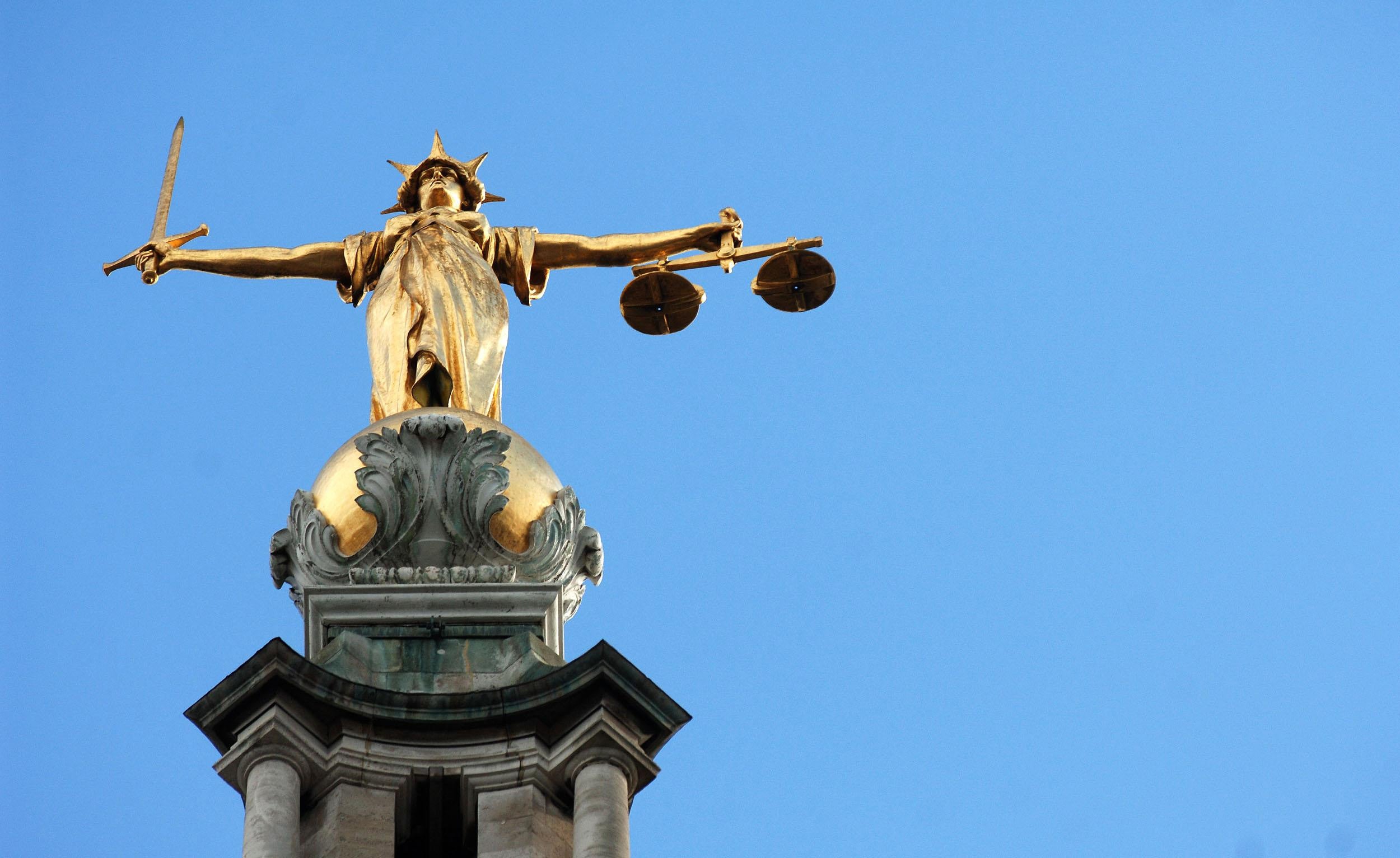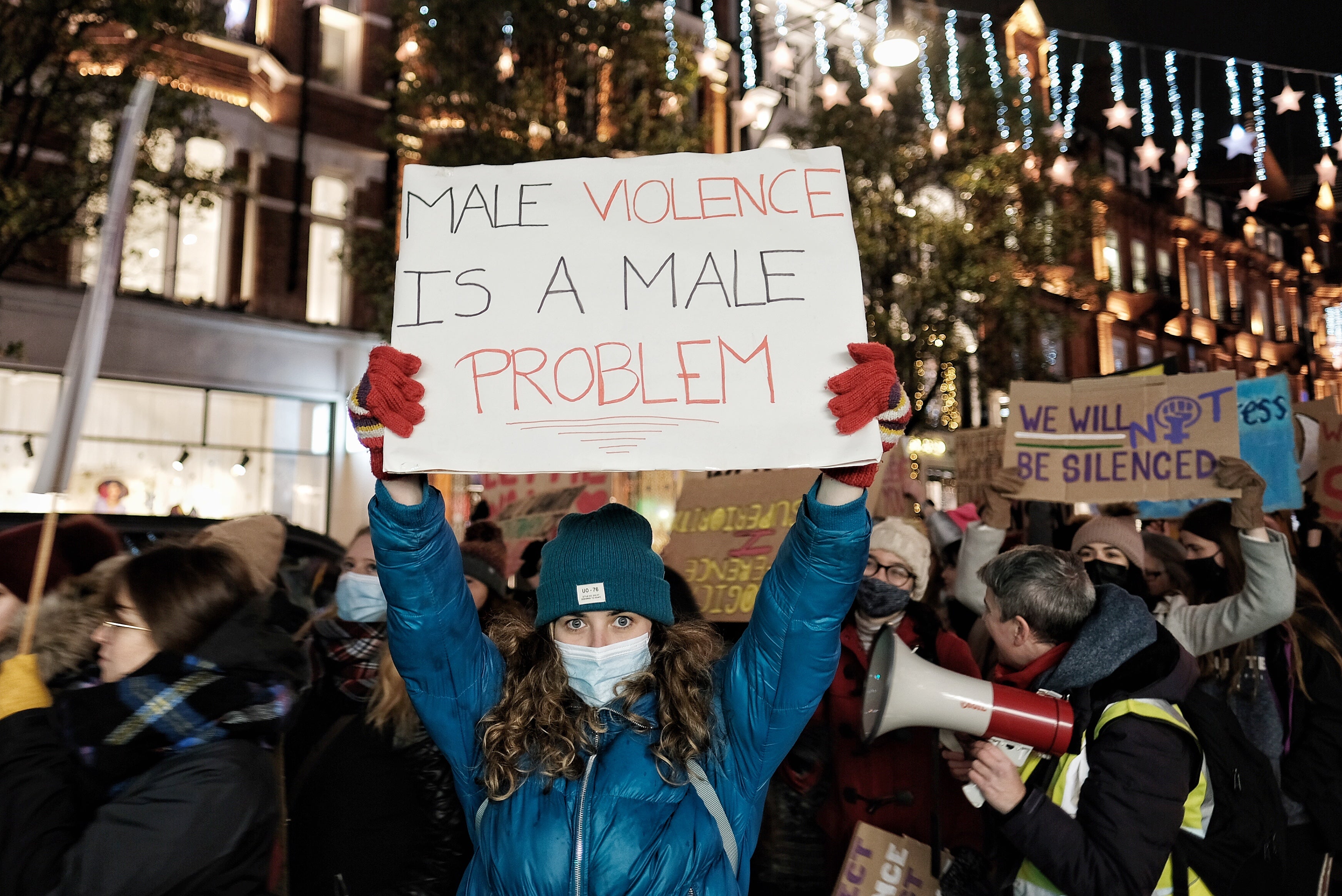Only 6% of all crimes result in charge, as rape prosecutions hit record low
Number of rapes recorded by police hit record high in same period, as government accused of failing to tackle violence against women

The proportion of crimes prosecuted in England and Wales has plummeted to a record low of 6 per cent, with only 1.3 per cent of rapes resulting in a charge.
At the same time, the number of sex attacks recorded by police have rocketed to record numbers, sparking accusations that “rape victims are being failed in ever-increasing numbers”.
New figures published by the Home Office on Thursday showed that in the year to September, figures fell for all types of offences.
Overall, 6 per cent of crimes were prosecuted, compared to 7.3 per cent the previous year.
The proportion of violent offences charged dropped from 7 per cent to 5.4 per cent year on year, robbery from 7.8 per cent to 6.9 per cent, theft from 5.2 per cent to 4.3 per cent and criminal damage from 5.1 per cent to 4.4 per cent.
Only 2.9 per cent of all sexual offences and 1.3 per cent of rapes resulted in a charge, compared to 3.6 per cent of sexual offences and 1.5 per cent of rapes in the year to September 2020.
Separate figures showed that police had recorded the highest ever number of rapes and sexual offences in the same period.
There were 63,136 rapes recorded in the year to September, according to the Office for National Statistics (ONS), up 1 per cent from the previous year.
The highest ever number of total sex offences was also recorded –170,97 – a 12 per cent year-on-year increase.
The ONS said the latest figures may reflect a “number of factors”, including the “impact of high-profile incidents, media coverage and campaigns on people’s willingness to report incidents to the police, as well as a potential increase in the number of victims”, and iurged caution when interpreting the data.
The figures cover the months following the kidnap, rape and murder of Sarah Everard in March.
The Victim’s Commissioner for England and Wales said charging rates for sexual offences had fallen “so low as to be barely discernible”.
“This is of grave concern,” added Dame Vera Baird QC. “We are once again faced with the crushing reality that the criminal justice system is continuing to fail rape victims in ever-increasing numbers.”

Dame Vera highlighted figures showing that 41 per cent of rape cases end with victims withdrawing their support - an outcome often linked to long delays for charging decisions and trials, and inadequate support..
“Rape victims are being subjected to endless, endemic delays,” she said. “We know that the stress and uncertainty is driving many to drop their claims altogether.”
Andrea Simon, director of the End Violence Against Women Coalition, said: “Recent high profile cases of violence against women have put sexual offences on the agenda like never before.
“But as more women are coming forward to report rape and sexual assault, they’re being confronted by a system that blames them, inappropriately focuses on their ‘credibility’ rather than the actions of the perpetrator, treats them poorly and ultimately is unlikely to bring them justice.
“These figures should be a wake up call to government that our justice system is broken and needs a radical overhaul to address the epidemic of sexual violence.”
Yvette Cooper, the shadow home secretary, called the figures shocking and “truly appalling”.
“The Conservative government is completely failing to tackle violence against women and girls,” she said.
“This is a truly damning Conservative record – thousands more criminals are being let off, thousands more victims are being let down.
“The government is still refusing to require specialist rape policing units, or make violence against women and girls a strategic police priority, or get police back into local neighbourhoods, or have a proper plan on online crime.”
The figures come amid record delays in the time taken for cases to be dealt with, after government cuts to court sitting days combined with the pandemic to cause a huge backlog.
The average time taken from the recording of a serious offence to the end of proceedings is now 708 days, and the number of outstanding crown court cases stands at around 60,000, including 49,000 trials.
The delays could have an impact on Thursday’s figures, which showed that 12 per cent of all crimes and 13 per cent of rape cases had not yet “been assigned an outcome”.
The Criminal Bar Association, which represents barristers, warned of a “perfect storm entirely of the government’s own making”.
“It is the victims of crime and defendants alike who pay the price, because of the severe shortages of judges and advocates, with it now being quite normal for complainants in serious criminal cases to be forced to wait four to five years before a trial is ever heard,” said chair Jo Sidhu QC.
Police forces have previously emphasised that sexual offences are under-reported, and that increased recording may not show a real-world rise in attacks.
Responding to Thursday’s figures, the Metropolitan Police said: “We know sexual offending has historically been under-reported. It is hoped this increase in some way reflects improving levels of trust and confidence within communities, allowing us to see a true picture of these types of crimes.”
The Crown Prosecution Service (CPS) said the number of cases referred by police for charging decisions had dropped, but that the proportion of referred cases it took forward was “broadly similar” since 2015.
“We always seek to charge whenever our legal test is met, no matter how challenging the case,” a spokesperson said.
“We are committed to driving up rape prosecutions and through closer partnerships with the police, we are working to increase referrals which should lead to more cases being charged.”



